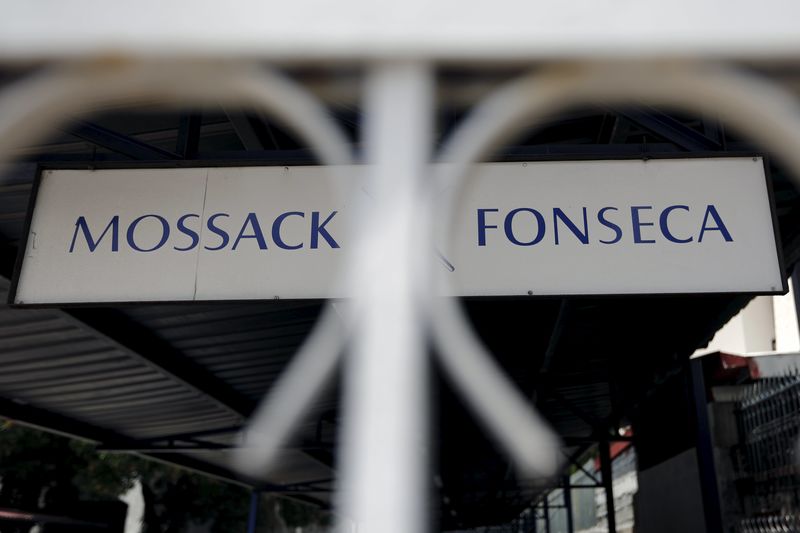 © Reuters. EU-based banks helped place Danish money in tax havens, tax agency says
© Reuters. EU-based banks helped place Danish money in tax havens, tax agency saysCOPENHAGEN (Reuters) – European Union-based banks helped companies and individuals in Denmark to place money in tax havens, Danish tax authorities said on Wednesday following a review of the leaked Panama Papers.
The Danish government paid $900,000 for access to Panama Papers documents in 2016 to help it identify tax cheat suspects in Denmark.
In a review of 2,400 emails sent between Panama-based law firm Mossack Fonseca and financial institutions, Danish tax authorities said they had identified 317 off-shore companies.
“Our review shows that a number of foreign banks have taken an active part in establishing corporate structures for tax purposes,” said Steen Bechmann Jacobsen, director at the Danish tax authority, SKAT, in a report.
It revealed cases where the banks had used companies made available by Mossack Fonseca to place money in tax havens, as well as cases where the Danish tax authority was given incorrect information, it said.
SKAT said it was too early to say whether financial advisers in the specific cases could be held responsible. It did not say when the banks had advised on tax havens.
Tax havens were cast into a global spotlight in 2016 after the details of offshore financial arrangements of hundreds of thousands of clients, including several world leaders, were leaked from Mossack Fonseca by an anonymous whistleblower.
Last year, Denmark’s government unveiled a major overhaul of its tax agency, after a string of scandals in which billions were lost.
The review found that foreign banks within the European Union were particularly involved, but found no evidence of involvement by Danish banks.
The Panamanian law firm said on March 14 that it was shutting down because of the economic and reputational damage it had suffered from global tax evasion debacle.
Fusion Media or anyone involved with Fusion Media will not accept any liability for loss or damage as a result of reliance on the information including data, quotes, charts and buy/sell signals contained within this website. Please be fully informed regarding the risks and costs associated with trading the financial markets, it is one of the riskiest investment forms possible.
Source: Investing.com




























